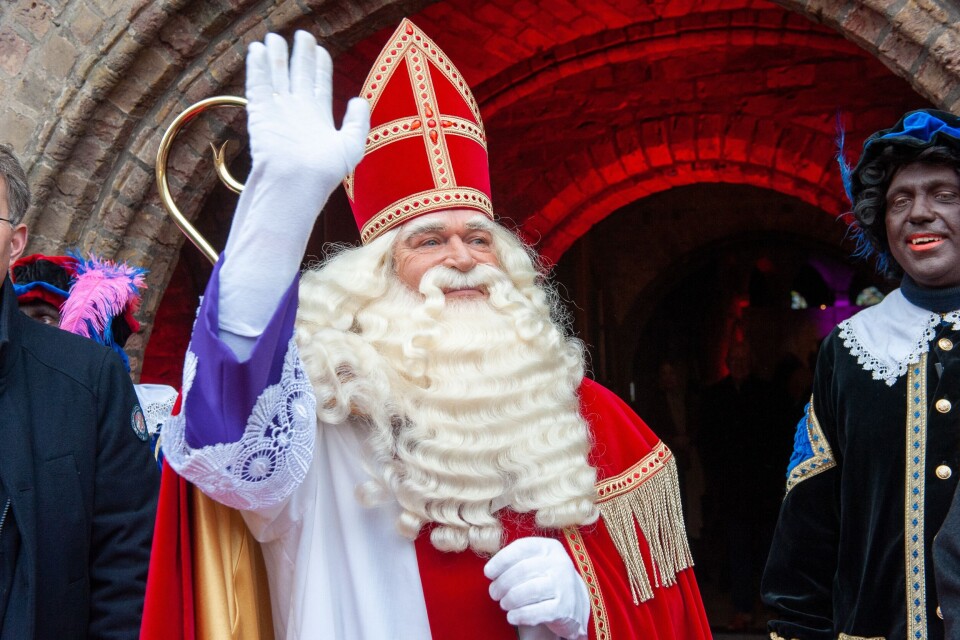-
Recycling in France: Ideas to give your Christmas tree a second life
Old trees can be turned into compost, used to help fight coastal erosion or even make animal feed
-
Do French people celebrate their ‘main’ Christmas on December 24 or 25?
The Connexion undertook a brief survey to find out
-
Festive presents to give to gardeners in France
Sarah Beattie has plenty of Christmas gifts to make horticulturalists happy
When is Saint Nicholas Day and how is it celebrated in France?
Some areas of France remember the saint who inspired Santa Claus in December

December is a busy month for Christian holidays, and while it may be Christmas that jumps immediately to mind, some areas of France celebrate another festival earlier in the month.
Saint Nicholas was the saint who inspired the legend of Santa Claus – due to his reputation as bringer of gifts and his wearing of long robes – and he is remembered on December 6 in Western Christian countries.
In France, Saint Nicholas is also remembered as a protector of children thanks to an old tale in which he saves three boys from a wicked butcher and returns them to their families.
Read also: The deadlines for sending Christmas gifts to and from France
This story is often told on December 6 and is also depicted in the popular French children’s song, la légende de Saint Nicolas (The legend of Saint Nicholas), sang by Henri Dès, a well known French singer for children.
Which areas of France celebrate Saint Nicholas day?
It is mainly eastern France that celebrates Saint Nicholas day - particularly Flanders, Alsace, Lorraine, Champagne and Franche-Comté.
The reason why these areas recognise the saint is said to date back to the Battle of Nancy in 1477.
René II, the Duke of Lorraine, was fighting against Charles the Bold in order to keep control of the area.
René placed his army under the protection of Saint Nicholas, and so after winning the battle he made him the patron saint of Lorraine.
Read also: Cost of Christmas trees up by 20%: how to find best option in France
He has been celebrated in the area ever since.
What is the legend of Saint Nicholas?
According to the story, three boys got lost on their way home. After spotting a house with the lights on, they knocked on the door and asked for refuge for the night.
The man who answered was a butcher called Pierre Lenoir. He killed the children and chopped them up, storing their bodies in a bucket of salt.
Later Saint Nicholas was walking with his donkey. He stopped and knocked on the butcher’s door, who then invited him in for dinner out of fear of rejecting a bishop.
Saint Nicholas asked for some salt and the butcher realised he had been discovered, admitting everything.
The saint then brought the children back to life and took them to their families.
Meanwhile, the evil butcher was chained to the saint’s donkey as punishment and kept close to Nicholas at all times – thus becoming Père Fouettard (Father Whipper), otherwise known as ‘bad Santa’, who according to the tale whipped children who misbehaved, or distributed lumps of coal instead of presents.
Read also: Children in France have until December 20 to write to Père Noël
Another story about Saint Nicholas inspired stockings on Christmas morning.
He is said to have helped a poor father with three unmarried girls by giving him a bag of gold for each of their dowries.
The story goes that he approached the house at night and tossed a first bag through an open window, after which it landed in a stocking hanging on the fireplace to dry.
He returned twice to give the father two more bags so that all three daughters could be married, although on the third occasion he was caught by the girls’ father, who had been watching the window to find out who had been so kind to him.
Saint Nicholas begged the father not to reveal his identity and told him to thank God alone for providing the gifts of gold in answer to his prayers.
How does France celebrate Saint Nicholas day?
In the regions of France that celebrate, someone dressed as Saint Nicholas is often accompanied by someone dressed as Père Fouettard to visit children at schools, nurseries or even door-to-door with chocolates, sweeties and little presents.
Read also: Christmas, Easter: See the dates for France’s school holidays 2022-23
Children often place their shoes on their doorstep for Saint Nicholas to fill with treats, as well as something for him to drink and a carrot for his donkey.
Gingerbread is baked by families and bakeries in some areas prepare brioche-style treats called mannele, which are made in a bishop shape and flavoured with raisins or chocolate chips.
In Metz, Nancy, Épinal, Saint-Dié, Bar-le-Duc and Verdun, the Saint Nicholas parade has become a tradition and usually takes place on the first Saturday or Sunday of December.
Meanwhile, some areas put on spectacles such as firework displays during the first weekend of December to mark the occasion.
Related articles
French cheesemakers bring out an advent calendar with 24 types to try
France’s ‘Christmas bonus’: Who is eligible and how does it work?
























